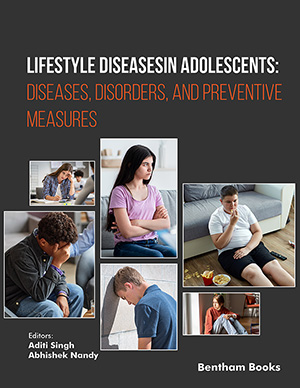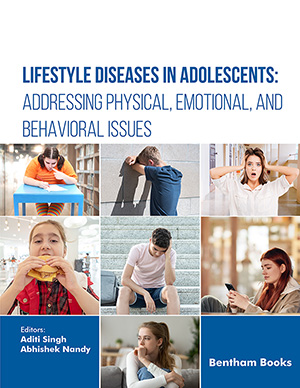
Abstract
Background: Diabetic retinopathy (DR) is a chronic diabetes complication. People with Type 2 Diabetes Mellitus (T2DM) have two times the risk for dementia, suggesting it is a new chronic diabetes complication.
Objective: Evaluate the association of DR with cognitive performance in a T2DM population.
Methods: Cross-sectional study with 400 T2DM adults from whom socio-demographic, clinical, laboratory data were collected, and screening test for depression symptoms (Patient Health Questionaire- 9 (PHQ-9)), Mini-Mental State Examination (MMSE), Semantic Verbal Fluency Test, Trail Making Test A and B, Word Memory test were performed. All cognitive test scores were converted into Global Cognition z-Score (GCS(z)). The association between GCS(z) < 0 with DR was performed using a multivariate binary logistic regression model adjusted for age ≥ 65 years, school years ≤ 6 years, DM duration ≥ 10 years, depression symptoms score > 9 at PHQ-9, arterial hypertension, physical activity, diabetic retinopathy, macular edema, and cardiovascular disease.
Results: After exclusions, the 251 eligible patients were 56.6% female, with a mean age of 61.1 (±9.8) years, DM duration of 12.6 (±8.9) years, and 7.6 (±4.2) years of school education. DR prevalence was 46.5%. Multivariate Logistic Regression Model showed an association between DR and GCS(z) < 0, with odds ratio (CI95%) of 2.50 (1.18-5.34), adjusted for age, low education level, arterial hypertension and depression symptoms (OD and CI95% respectively: 5.46(2.42-12.34); 12.19 (5.62-26.46); 2.55 (0.88-7.39); 3.53 (1.55-8.07)).
Conclusion: In this T2DM population, having DR increased the chance for worse cognitive performance even when adjusted for age, low education level, presence of arterial hypertension, and depression symptoms.
Keywords: Diabetic retinopathy, cognitive dysfunction, type 2 diabetes mellitus, risk factors, dementia, cognitive decline.
[http://dx.doi.org/10.1016/S0140-6736(20)30925-9] [PMID: 33069326]
[http://dx.doi.org/10.2337/dc11-1909] [PMID: 22301125]
[http://dx.doi.org/10.1212/WNL.53.9.1937] [PMID: 10599761]
[http://dx.doi.org/10.2337/diabetes.51.4.1256] [PMID: 11916953]
[http://dx.doi.org/10.7326/M14-0737] [PMID: 25437406]
[http://dx.doi.org/10.1016/j.jalz.2013.01.001] [PMID: 23562428]
[http://dx.doi.org/10.1016/S1474-4422(11)70072-2] [PMID: 21775213]
[http://dx.doi.org/10.2337/dc16-1229] [PMID: 28325796]
[http://dx.doi.org/10.1007/s00125-005-0023-4] [PMID: 16283246]
[http://dx.doi.org/10.1016/j.diabres.2016.10.024] [PMID: 28088029]
[http://dx.doi.org/10.1111/jdi.12087] [PMID: 24843720]
[http://dx.doi.org/10.1016/S1474-4422(05)70284-2] [PMID: 16361024]
[http://dx.doi.org/10.1007/s00592-017-0970-5] [PMID: 28210868]
[http://dx.doi.org/10.1016/j.jalz.2013.12.010] [PMID: 24529528]
[http://dx.doi.org/10.1016/S2213-8587(19)30405-X] [PMID: 32135131]
[http://dx.doi.org/10.1038/jcbfm.2013.58] [PMID: 23591648]
[http://dx.doi.org/10.2337/dc12-2141] [PMID: 23633523]
[http://dx.doi.org/10.1210/clinem/dgaa921] [PMID: 33378459]
[http://dx.doi.org/10.3233/JAD-132570] [PMID: 24625797]
[http://dx.doi.org/10.3389/fnagi.2021.692911] [PMID: 34276346]
[http://dx.doi.org/10.1016/j.neurobiolaging.2017.09.003] [PMID: 28974335]
[http://dx.doi.org/10.3390/jcm9092807] [PMID: 32872672]
[http://dx.doi.org/10.1001/jama.2013.281053] [PMID: 24141714]
[http://dx.doi.org/10.2337/dc12-2480] [PMID: 23589542]
[http://dx.doi.org/10.36660/abc.20201238] [PMID: 33909761]
[http://dx.doi.org/10.1111/ceo.12696] [PMID: 26716602]
[http://dx.doi.org/10.1016/S0161-6420(03)00475-5] [PMID: 13129861]
[http://dx.doi.org/10.1159/000343899] [PMID: 23243414]
[http://dx.doi.org/10.7326/0003-4819-150-9-200905050-00006] [PMID: 19414839]
[PMID: 32215507]
[http://dx.doi.org/10.1590/S1980-57642014DN81000005] [PMID: 29213876]
[http://dx.doi.org/10.3922/j.psns.2009.2.012]
[http://dx.doi.org/10.1080/13854046.2012.748094] [PMID: 23259850]
[http://dx.doi.org/10.1590/S0004-282X2005000400034] [PMID: 16172733]
[http://dx.doi.org/10.1590/S0004-282X2001000400009] [PMID: 11588630]
[http://dx.doi.org/10.1016/j.jalz.2007.08.005] [PMID: 18631955]
[http://dx.doi.org/10.1002/(SICI)1099-1166(199805)13:5<285:AID-GPS753>3.0.CO;2-V] [PMID: 9658260]
[http://dx.doi.org/10.1590/S0004-282X1998000400014] [PMID: 9850757]
[http://dx.doi.org/10.1590/S0004-282X1994000100001]
[http://dx.doi.org/10.1590/S0004-282X2003000500014] [PMID: 14595482]
[http://dx.doi.org/10.1590/S1980-57642010DN40100006] [PMID: 29213658]
[http://dx.doi.org/10.1093/ije/dyv096.503]
[http://dx.doi.org/10.1186/1758-5996-2-10] [PMID: 20205826]
[http://dx.doi.org/10.1016/S0924-9338(09)71489-0]
[http://dx.doi.org/10.1590/S0102-311X2013001200006] [PMID: 24005919]
[http://dx.doi.org/10.1002/0471722146]
[http://dx.doi.org/10.1016/S2213-8587(16)30010-9] [PMID: 27156051]
[http://dx.doi.org/10.1212/WNL.0000000000004826] [PMID: 29282327]
[http://dx.doi.org/10.1001/jama.2014.13806] [PMID: 25514304]
[http://dx.doi.org/10.1159/000093378] [PMID: 16707907]
[http://dx.doi.org/10.1016/S0140-6736(20)30367-6] [PMID: 32738937]
[http://dx.doi.org/10.1016/j.visres.2017.05.009] [PMID: 28619516]
[PMID: 33748826]
[http://dx.doi.org/10.1016/j.ejphar.2004.02.045] [PMID: 15094074]
[PMID: 29217283]
[http://dx.doi.org/10.1016/j.neuron.2008.04.014] [PMID: 18549783]
[http://dx.doi.org/10.1001/jamaneurol.2018.1578] [PMID: 29946685]
[http://dx.doi.org/10.1167/iovs.16-19067] [PMID: 27092718]
[http://dx.doi.org/10.1167/iovs.09-5041] [PMID: 20130282]
[http://dx.doi.org/10.1002/acn3.746] [PMID: 31019993]
[http://dx.doi.org/10.3233/JAD-200678] [PMID: 32925064]
[http://dx.doi.org/10.3389/fnins.2021.690896] [PMID: 34234643]
[http://dx.doi.org/10.1016/j.jalz.2018.06.2856] [PMID: 30098888]
[http://dx.doi.org/10.1016/j.preteyeres.2017.01.001] [PMID: 28057562]
[http://dx.doi.org/10.1007/s10654-018-00478-y] [PMID: 30610413]
[http://dx.doi.org/10.1016/j.ophtha.2020.12.029] [PMID: 33422559]
[http://dx.doi.org/10.1001/jamaophthalmol.2017.2838] [PMID: 28817745]
[http://dx.doi.org/10.1038/s41598-020-66002-z] [PMID: 32499618]
[http://dx.doi.org/10.3389/fnagi.2019.00363] [PMID: 31920631]
[http://dx.doi.org/10.1371/journal.pone.0147646] [PMID: 26808979]
[http://dx.doi.org/10.1007/s00592-021-01829-0] [PMID: 35112186]
[http://dx.doi.org/10.1016/j.ajo.2022.01.011] [PMID: 35063409]
 37
37 2
2



























